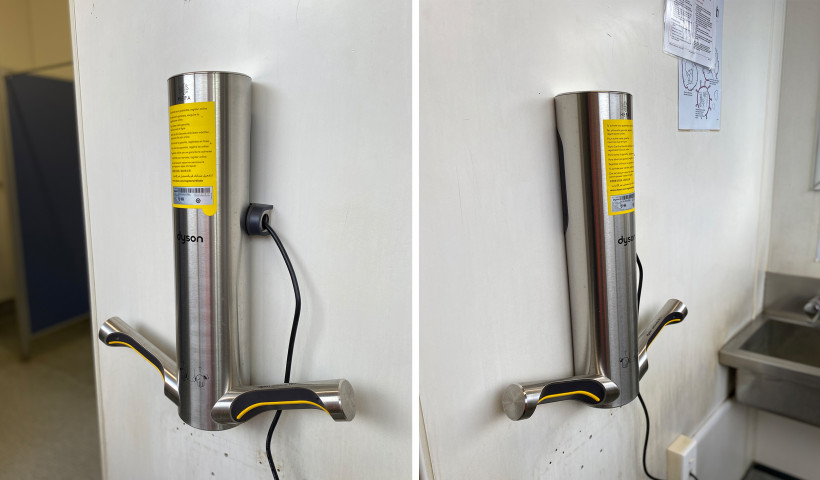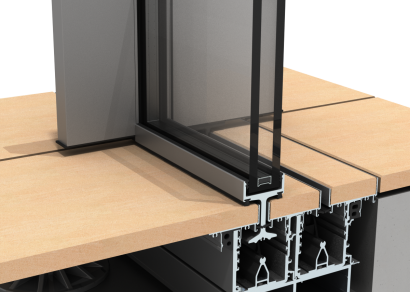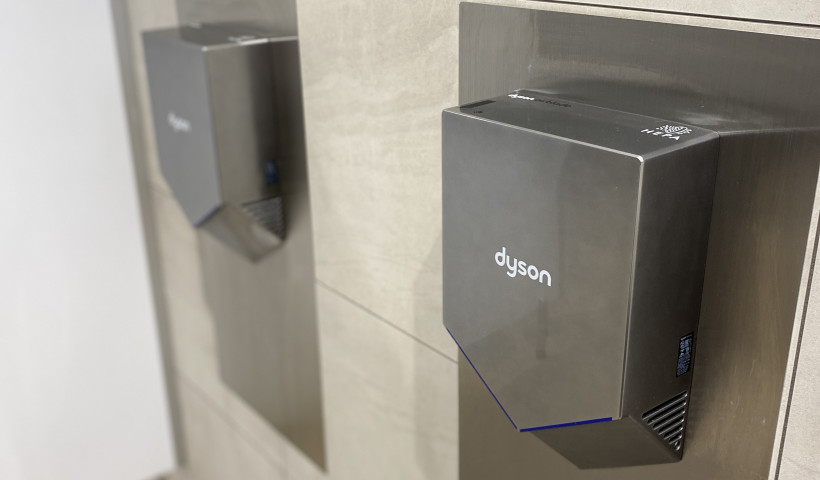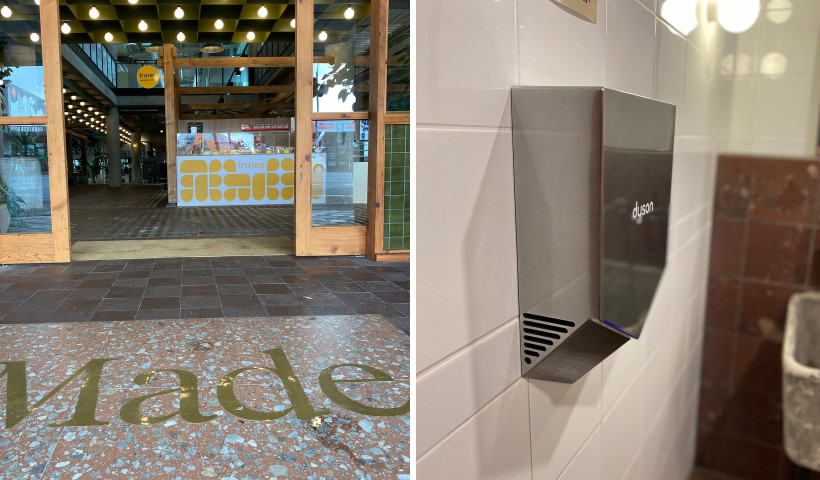
A leading Massachusetts-based research university study has proven that recycled and virgin paper towels have the highest environmental impact, but when it comes to green credentials in public bathrooms, a hand dryer that doesn’t rely on warm air is the most sustainable way to dry hands.
Paper towels and warm air hand dryers have the highest environmental toll according to this comprehensive lifecycle analysis (LCA), generating 70% or more carbon emissions than a hand dryer made by vacuum manufacturer, Dyson. Rather than warm air, the Dyson Airblade hand dryer uses sheets of cool, clean air to scrape water from hands.
Brett Avery, of Dyson New Zealand, says that if every New Zealander visited the bathroom just once a day for a year and used two paper towels each time, there would be enough paper waste to cover Eden Park’s number one field, eight times over.
“This is astonishing when compared with Dyson’s current hand drying technology, which obviously has zero paper waste. While paper towels are the most resource intensive hand drying method, the environmental impact of warm air hand dryers occurs during use.
“In the conventional hand dryers which use warm air, energy-hungry heating elements and inefficient motors tip the sustainability scales, making these warm air dryers up to 80% less energy efficient than the Dyson Airblade hand dryer,” says Avery.
He believes paper towels and warm air hand dryers – like vacuum bags – are from a bygone era.
“Technology has moved on. People want to dry their hands quickly, completely and without damaging the environment.”
An excerpt from the Life Cycle Assessment of Hand Drying Systems.
Despite public perception that recycled paper towels are better for the environment, the report’s researchers found that the environmental impact of recycled towels equals that of virgin paper towels in a number of environmental measures, including CO2 emissions and water consumption. Recycled and virgin towels both generate over three times more carbon emissions than the Dyson Airblade hand dryer – creating waste, consuming more energy and using more water.Waste accounts for only a fraction of recycled paper’s carbon footprint: 65% is created during manufacturing due to the energy, chemicals and water used. Rather than innovate, paper towel manufacturers spend millions opposing stricter environmental rules related to paper manufacturing[3].
This comprehensive LCA has helped Dyson pinpoint where engineering improvements can be made to further reduce the environmental impact of its technologies. And create high-performing machines that use less materials and less energy.
- T. Montalbo, J. Gregory, R. Kirchain. Life Cycle Assessment of Hand Drying Systems.













 Product News
Product News















 Popular Products from Dyson
Popular Products from Dyson

 Most Popular
Most Popular


 Popular Blog Posts
Popular Blog Posts
